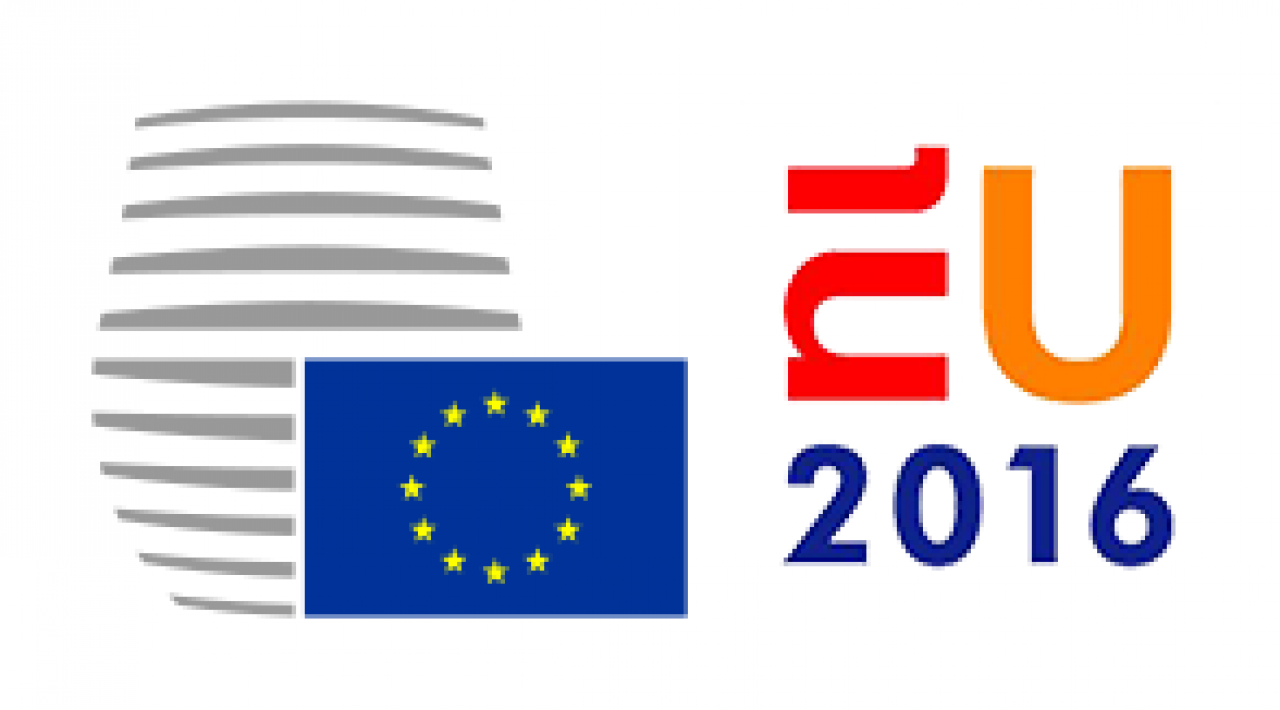The Netherlands Presidency of the Council of the EU
01 January 2016 News
The Netherlands takes over the rotating presidency of the Council of the European Union for the 12th time. The Netherlands presidency (January - June 2016) is the first in the current trio made up of Slovakia (July-December 2016) and Malta (January- June 2017). The last Netherlands presidency of the Council of the EU was in 2004.
The priorities and the programme of the presidency are based on the Strategic Agenda of the EU adopted in June 2014 and the 10-point programme of the President of the European Commission. In December 2015 the Dutch Foreign Ministry presented to the Parliament its traditional annual document "State of the Union", including an analysis of the current challenges facing the European Union and a review of the objectives of the presidency in individual policies. The annotated agenda for the different Council formats in the period January - June 2016 was also presented.
The Netherlands presidency work programme is based on the following principles:
- focus on the essentials – respecting the principles of subsidiarity and proportionality, improving the quality of legislation, ‘making it simpler and more workable’ and resulting in a reduction in the administrative burden for citizens, businesses, local authorities and institutions;
- a better connection – promoting civic participation, strengthening the democratic legitimacy of the EU, more effective involvement by people and civil society organisations in policy debates and promoting transparency in the EU decision-making process;
- innovative Union focused at growth and jobs – increasing the competitiveness and the EU's role on the world stage, focusing on innovation as the key to sustainable and inclusive development; removing barriers to innovation in the internal market, promoting research, strengthening the digital economy, promoting national reforms, job creation.
The Netherlands presidency focuses on four key areas:
- Migration and international security - A common border control and asylum and migration policy, equitable distribution of responsibility for refugees in Europe, effective control of migratory flows, improving the mechanisms and procedures for the access of migrants in the EU; common action of the Member States and focus on the causes of the migration crisis;
- Sound finances and a robust eurozone - continuation of the reforms, a modern economy and sound public finances, strong eurozone and implementation of commitments in terms of the monetary union. The Netherlands intends to launch a debate on reforming the multiannual financial framework;
- Europe as an innovator and job creator - focus on structural growth and job creation through innovation, reducing the regulatory burden on businesses, investment in research, free trade agreements;
- Forward-looking climate and energy policy - unified approach to climate issues, environment and sustainable growth, "circular" economy, prudent use and recycle natural resources and raw materials, including waste.
Organisational issues
The main conference center during the Presidency is the National Maritime Museum and the neighbouring historic naval dockyard in Amsterdam. The motives of the government are that the concentration of activities in one location enables cost reduction. During the previous Dutch presidencies the meetings were held in different cities of the country.
The presidency logo will remain the same as in 2004. The communication strategy of the presidency includes creation of websites, calendars, apps for the latest news, infographics, Twitter, mobile application, and a visitor center in Amsterdam, lectures, dialogues and discussions.
The official website of the presidency is http://english.eu2016.nl/
